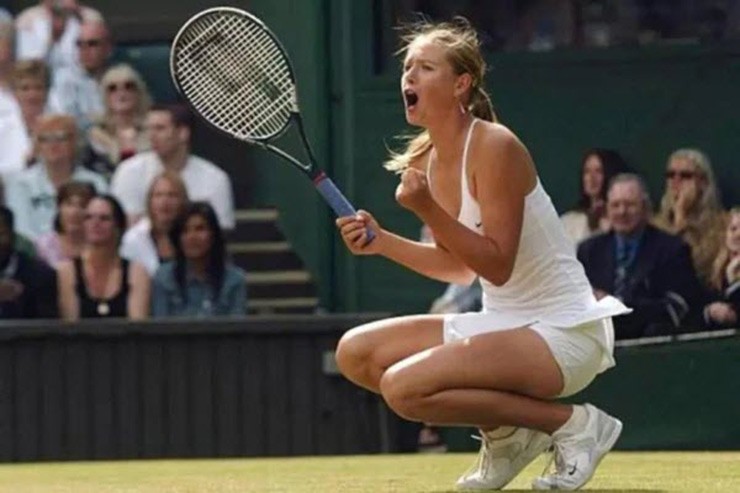Maria Sharapova has played tennis for 20 years and won 5 Grand Slam titles. In addition, she has also become a beauty and fashion icon off the court. However, to be successful in both aspects requires perseverance not only in health but also in psychology, something Sharapova has had to try very hard to maintain.
Sharapova is stopping in Asia to train tennis
In an interview for Bazaar India magazine, Sharapova said she had to change herself to adapt to many developments in her life, from aging to the priority she gave to her life. fields other than tennis. Sharapova is on a trip to Asia to coach tennis and she is currently in Phuket, Thailand after leaving India.
Question: How has your understanding of mental health changed throughout your career?
Sharapova: In a long career we all go through changes and adjustments to what we have based on both our abilities and our needs. What I needed when I was 17 years old is not what I needed when I was about to retire. The most important thing is that we must be ready for those changes, which is no different from constantly practicing to compete well.
Sharapova: As I get older, I pay more attention to recovery. I researched what methods were best for me, both in terms of muscles, flexibility and breathing. It’s important to have a foundation. You can’t expect your recovery to be quick if you don’t have a body that’s suitable for the method you choose, whether it’s cold baths, stretching or other forms.

Sharapova said she faces a lot of pressure as an icon of both tennis and fashion
Question: Today’s athletes are increasingly reaching their body’s limits in search of victory, but is the distance to that victory large or small?
Sharapova: Very small, especially in the best athletes. I can’t play perfectly every match, rarely do athletes play perfectly. The most important thing is to evaluate what you are doing wrong and think of a solution, think positively and focus on the next point instead of thinking further ahead.
Question: How does the pressure of competing at the highest level affect your personal life?
Sharapova: Many years of competition have made me learn valuable lessons. I focus on preparing mentally and physically for the next matches, especially mentally because if my mentality is good, I feel my body is stronger.
Question: You have now become a tennis teacher, so how do you handle when tennis players have different levels of fitness and level?
Sharapova: I want them to not be overwhelmed by certain standards, and I want them to create beneficial habits that will help them create rhythms in their lives that will help them play better. Most importantly, after practicing with me, young athletes feel confident and comfortable.

Sharapova wants young tennis players to develop good habits to be more successful
Question: What is your number 1 goal in your search for success?
Sharapova: Never stop growing. As I get older and more knowledgeable I understand what’s most important in life and I make that the focus to build my skills around it. And in the process of achieving that goal, I look for people who bring me joy and things that keep me motivated.
Question: What tips do you have for young athletes just starting out?
Sharapova: Be yourself as you become more successful. When you are successful, you will be surrounded by outside influences and opinions. Sometimes they weigh on you, causing you to deviate from the path you have outlined. Rely on your instincts and make your own decisions. Letting others help is good, but you must take control of your own career.




